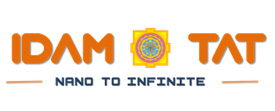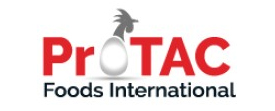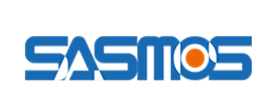Foreign Trade Policy
Need assistance with foreign trade regulations? Explore the guide below to understand how we can support you in complying with India’s Foreign Trade Policy, including duty benefits, export incentives, and licensing requirements.

The Foreign Trade Policy (FTP) is the regulatory framework that governs the import and export of goods and services in India. It facilitates international trade while ensuring compliance with both domestic laws and global trade regulations. Administered by the Directorate General of Foreign Trade (DGFT), FTP establishes guidelines, procedures, and incentives to promote exports, regulate imports, and improve the competitiveness of Indian businesses in the global market.
The primary objective of FTP is to simplify procedures and reduce transaction costs, along with increasing the transparency of international trade. FTP offers incentives like the Merchandise Exports from India Scheme (MEIS) and Service Exports from India Scheme (SEIS) to encourage businesses to enter global markets. It also facilitates duty exemptions under schemes such as Advance Authorisation and Export Promotion Capital Goods (EPCG), which help businesses minimise costs while complying with mandatory export and import guidelines.
A deep understanding of FTP is important for any company involved in cross-border trade to ensure they not only comply with regulations but also leverage available benefits to drive business growth. In the upcoming sections, you can find more details on the Foreign Trade Policy.
Features of Foreign Trade Policy Service
The Foreign Trade Policy (FTP) offers a wide range of services that facilitate international trade, ensure compliance, and maximise incentives under various schemes. Below is a detailed table outlining the key features of FTP services:
| Features | Description | Benefits for Businesses |
|---|---|---|
Comprehensive Advisory on FTP |
Expert guidance on adhering to the rules and procedures outlined by the Directorate General of Foreign Trade (DGFT) and FTP. | Reduces the risk of penalties and ensures businesses stay compliant with evolving regulations. |
Import Export Licensing & Registration |
Assistance in obtaining or renewing the Importer Exporter Code (IEC) and trade licences such as EPCG and Advance Authorisation. | Quick and hassle-free processing of necessary licences, ensuring uninterrupted trade operations. |
Duty Exemption and Concession Schemes |
Facilitation of duty exemptions under schemes like Advance Authorisation, EPCG, and Duty Drawback Scheme. | Significant cost savings by lowering import duties on raw materials and capital goods. |
Export Incentives and Benefits Management |
Assistance with schemes such as the Merchandise Exports from India Scheme (MEIS) and Service Exports from India Scheme (SEIS). | Maximises financial benefits through accurate claims, enhancing profitability from export activities. |
Documentation and Compliance |
Guidance on preparing and submitting essential trade documents, including shipping bills, export invoices, and certificates of origin. | Avoids costly errors and ensures smooth international transactions, reducing the risk of shipment delays. |
Trade Dispute Resolution Support |
Advisory on resolving disputes related to international trade, including incorrect duty claims and compliance issues. | Helps in timely resolution of issues, preventing potential business losses or legal complications. |
Foreign Exchange Management (FEMA) |
Expert advice on FEMA regulations governing international financial transactions related to import/export activities. | Ensures compliance with foreign exchange rules, mitigating risks of penalties and legal repercussions. |
Market Access and Trade Strategy Development |
Strategic planning for accessing international markets, aligning with FTP incentives and trade facilitation measures. | Enables businesses to identify new market opportunities and scale operations globally with minimal risks. |
Our Services
We offer end-to-end FTP compliance solutions to help businesses optimise trade incentives, maintain regulatory compliance, and streamline export-import operations. Our services help you to be in terms with the Directorate General of Foreign Trade (DGFT) guidelines, minimising risks while maximising export benefits.
Our service offerings under Foreign Trade Policy (FTP) Compliance include:
- We provide you with strategic FTP Advisory and Policy Interpretation that includes HS Code classification, valuation disputes, and tariff rate analysis.
- Provide Customs Valuation & Tariff Consultancy that helps you to determine accurate valuation under WTO-GATT rules and mitigate risks of misclassification.
- To resolve any policy disputes and handle policy-driven grievances we provide you with DGFT Liaisoning & Representation.
- To ensure accurate computation, documentation and claim submissions we help you with MEIS, SEIS, and RoDTEP incentive structuring.
- Advance Authorization & Duty Exemption Support, including bond execution, license renewals, and monitoring export obligations.
- Export Control Compliance & Risk Mitigation for businesses dealing with restricted or dual-use goods under DGFT and SCOMET regulations.
- Supply Chain and Logistics Advisory, optimising trade routes, free trade zone utilisation, and cost-effective import-export strategies.
- Real-Time FTP Compliance Monitoring & Audit, assessing regulatory gaps and rectifying potential non-compliance issues.
- Foreign Exchange Regulations & RBI Compliance for seamless international transactions aligned with FEMA provisions.
- DGFT Online Portal Compliance & Documentation Management for seamless integration with ICEGATE and EDI customs systems.
- Remission & Refund Assistance, including GST refund claims for export businesses and resolving refund blockages under FTP.
- Export Data Analytics & Performance Benchmarking, leveraging AI-driven insights to optimise export incentive claims and duty savings.
- Third-Party Trade Compliance Audits & Certification Readiness for businesses engaging in global trade agreements.
- Letter of Credit (LC) & Trade Finance Structuring to facilitate risk-free international transactions and ensure smooth fund realisation.
Why Choose Benchmark for Foreign Trade Policy Services
At Benchmark, we have hands-on experience in foreign trade compliance, providing you with unparalleled expertise to help you understand the Foreign Trade Policy. We understand that global trade requires more than just adherence to regulations; it demands strategic execution and leveraging the right schemes at the right time. Our team of experts specialises in handling Importer Exporter Code (IEC) registrations and complex schemes like Advance Authorisation and Export Promotion Capital Goods (EPCG), ensuring compliance with the Duty Drawback Scheme.
Additionally, we assist businesses in accessing key benefits under the Merchandise Exports from India Scheme (MEIS) and Service Exports from India Scheme (SEIS), maximising the financial rewards from exports. What sets us apart is our deep understanding of the trade world combined with a proactive approach to compliance.
We provide custom solutions to ensure your business is compliant with Directorate General of Foreign Trade (DGFT) regulations while simultaneously identifying opportunities to reduce costs through duty exemptions and concessions. Whether you need support with customs duty classification, Foreign Exchange Management Act (FEMA) compliance, or dispute resolution, we offer comprehensive services that minimise risks, eliminate errors, and streamline international trade operations.
Documents Required
Below is a comprehensive table detailing the key documents required for various Foreign Trade Policy (FTP) services. Each document serves a specific purpose in ensuring compliance with the Directorate General of Foreign Trade (DGFT) and other regulatory authorities:
| Service/Licence | Required Documents | Purpose |
|---|---|---|
Importer Exporter Code (IEC) |
|
Required for registering any entity involved in international trade with DGFT. It is the primary code for any import/export activity. |
Advanced Authorisation |
|
To procure raw materials without paying customs duties, provided the finished product is exported, this authorisation is a must. |
Export Promotion Capital Goods (EPCG) |
|
Allows duty-free import of capital goods for export purposes, requiring proof of intended export growth and previous export performance. |
Duty Drawback Scheme |
|
Reclaims customs duties paid on imported inputs that are used to manufacture exported goods, requiring accurate documentation of export and customs transactions. |
Merchandise Exports from India Scheme (MEIS) |
|
Enables businesses to claim rewards for the export of notified products to specified markets. |
Service Exports from India Scheme (SEIS) |
|
Provides duty credit scrips to service exporters, requiring documentation of service export performance and payments. |
Process of Foreign Trade Policy Compliance
The process of complying with Foreign Trade Policy (FTP) involves multiple steps, each designed to ensure that businesses operate within the regulatory framework while maximising the benefits of various trade schemes. Here’s a step-by-step breakdown of the FTP compliance process:
Step 1: Initial Compliance Assessment
The first step is conducting a thorough review of your existing trade practices to identify any gaps in compliance with the Directorate General of Foreign Trade (DGFT) guidelines.
Step 2: Obtain or Renew Importer Exporter Code (IEC)
The IEC is mandatory for engaging in international trade. This step includes preparing and submitting necessary documents such as your PAN card, business address proof, and bank details.
Step 3: Application for Duty Exemptions and Export Incentives
Depending on your business operations, you may apply for schemes like Advance Authorisation or Export Promotion Capital Goods (EPCG). The process includes the submission of technical documents such as the Bill of Materials (BOM), Proforma Invoices, and Chartered Engineer Certificates, which verify the intended use of imported goods in export production.
Step 4: Customs Documentation and Classification
Accurate classification of goods under the Harmonised System (HS) is essential to determine applicable customs duties. Preparing and submitting shipping bills, bills of lading, and export invoices ensures that your consignments are properly documented, reducing the risk of misclassification penalties.
Step 5: Claiming Export Benefits
For claiming benefits under schemes like the Merchandise Exports from India Scheme (MEIS) or the Service Exports from India Scheme (SEIS), the process involves online applications through the DGFT portal, supported by export documentation such as Bank Realisation Certificates (BRC) and Shipping Bills.
Step 6: FEMA Compliance for Foreign Exchange Transactions
For companies dealing in foreign currency, compliance with the Foreign Exchange Management Act (FEMA) is critical. This includes filing necessary forms such as A1 or A2 with your authorised dealer bank, ensuring that all export proceeds are realised within the stipulated timeline, and maintaining proper documentation of foreign exchange transactions.
Step 7: Audit and Continuous Monitoring
The final step in ensuring ongoing compliance with FTP regulations is conducting regular internal audits of your trade operations. This involves periodic reviews of your export/import documentation, monitoring trade incentive claims, and ensuring timely submission of reports to DGFT.
Benefits of Foreign Trade Policy Services
Complying with the Foreign Trade Policy (FTP) offers numerous advantages for businesses involved in international trade. Below are some key benefits:
Enhanced Global Competitiveness
Compliance with FTP ensures that businesses can access global markets seamlessly, reducing trade barriers and fostering international growth.
Maximisation of Export Incentives
Proper compliance to export-related schemes like MEIS, SEIS, and RoDTEP allows businesses to fully claim rewards, increasing overall profitability.
Cost Reduction Through Duty Exemptions
By utilising schemes like Advance Authorisation and EPCG, companies can import raw materials and capital goods duty-free, substantially lowering production costs.
Improved Cash Flow
Timely application and receipt of export incentives can improve liquidity, giving businesses more flexibility in managing working capital.
Favourable Trade Relations
Compliance fosters trust with international partners and regulatory authorities, enhancing the business's reputation and opportunities for future collaborations.
Operational Efficiency
With a well-structured compliance process, businesses can streamline their import/export activities, reducing delays and increasing operational efficiency.
Sector-Specific Insights on Foreign Trade Policy (FTP)
The Foreign Trade Policy (FTP) provides custom incentives, exemptions, and support measures across various industries. Below is a breakdown of how FTP benefits key sectors:
| Sector | FTP Benefits & Incentives | Impact on Business |
|---|---|---|
Textiles & Apparel |
- Duty-free import of raw materials under Advance Authorization. - Merchandise Exports from India Scheme (MEIS) benefits. - Rebate of State and Central Taxes and Levies (RoSCTL) for apparel exporters. |
- Reduces production costs, making Indian textiles globally competitive. - Export profitability is enhanced through duty exemptions and incentives. |
Pharmaceuticals |
- Export Promotion Capital Goods (EPCG) scheme for importing advanced machinery. - Assistance under MEIS for select pharma products. - Compliance support for Good Manufacturing Practices (GMP) in exports. |
- Enables pharma exporters to acquire high-tech machinery at lower costs. - Increases market access through compliance facilitation. |
IT & Services |
- Service Exports from India Scheme (SEIS) for IT & software service providers. - Easing of FEMA regulations for IT exporters. - Simplified compliance for software export declarations (SOFTEX). |
- Encourages growth of IT exports through financial benefits. - Enhances ease of doing business for service providers in global markets. |
Automobile & Engineering |
- Duty-free import of raw materials & components under EPCG. - MEIS incentives for vehicle and component exports. - Simplified licensing process for automobile testing equipment imports. |
- Reduces production costs, making Indian vehicles and components more competitive. - Supports expansion into new international markets. |
Agri-Exports |
- Remission of Duties and Taxes on Exported Products (RoDTEP) for agri-exports. - Support for organic product certification for international markets. - Export subsidies for processed food industries. |
- Makes Indian agricultural and processed food exports more cost-effective. - Facilitates global acceptance of Indian organic products. |
Renewable Energy |
- EPCG benefits from importing high-tech renewable energy equipment. - Special incentives for solar, wind, and clean energy exporters. - Organised customs clearance for energy sector imports. |
- Supports India's green energy initiatives by lowering equipment costs. - Encourages export of renewable energy solutions to global markets. |
Non-Compliance Issues
Non-compliance with the Foreign Trade Policy (FTP) can lead to severe financial penalties, operational disruptions, and legal consequences. Below are key non-compliance issues businesses should avoid:
- Failure to Obtain or Renew Importer Exporter Code (IEC)
- Misclassification of Goods Under the Harmonised System (HS)
- Inaccurate Documentation in Shipping Bills and Invoices
- Delayed Submission of Bank Realisation Certificates (BRC)
- Improper Claiming of Export Incentives (MEIS, SEIS, etc.)
- Non-Adherence to Advance Authorisation or EPCG Conditions
- Violations of Foreign Exchange Management Act (FEMA) Guidelines
- Misuse of Duty Exemptions or Concessions
Conclusion
Understanding the complexities of the Foreign Trade Policy (FTP) requires expertise, precision, and a proactive approach. By ensuring full compliance with DGFT regulations and making the most of available incentives, your business can not only avoid penalties but also capitalise on the numerous benefits that international trade has to offer.
Get in Touch
Ready to simplify your trade operations and maximise your export potential? Contact Benchmark today for expert guidance on Foreign Trade Policy services and take your business to the next level in international trade.
FAQs
What is the importance of having an Importer Exporter Code (IEC) for my business?
The Importer Exporter Code (IEC) is a mandatory identification number for any business engaged in international trade. Without it, businesses cannot legally import or export goods, and they may miss out on various export incentives and schemes under the Foreign Trade Policy.
Can businesses with small export volumes still benefit from Foreign Trade Policy incentives?
Yes, even small and medium-sized exporters can benefit from schemes like MEIS, SEIS, and RoDTEP. These schemes are designed to boost exports regardless of the volume, provided the businesses comply with the necessary documentation and regulatory requirements.
How does the Merchandise Exports from India Scheme (MEIS) differ from the Service Exports from India Scheme (SEIS)?
MEIS provides incentives to businesses exporting physical goods, whereas SEIS offers benefits to service providers exporting eligible services. Both schemes provide duty credit scrips, but they apply to different sectors and have distinct eligibility criteria.
Can businesses apply for multiple trade incentives simultaneously under the Foreign Trade Policy?
Yes, businesses can avail multiple incentives under different schemes like MEIS, SEIS, and Advance Authorisation, provided they meet the eligibility criteria for each scheme. Proper documentation and compliance with the respective conditions are essential to avoid conflicts and penalties.
What are RoDTEP benefits and how can my business claim them?
The Remission of Duties and Taxes on Exported Products (RoDTEP) scheme refunds the embedded taxes and duties on exported goods that are not refunded under other schemes. Businesses need to apply through the DGFT portal, and the scheme supports exporters by improving cost competitiveness.




































